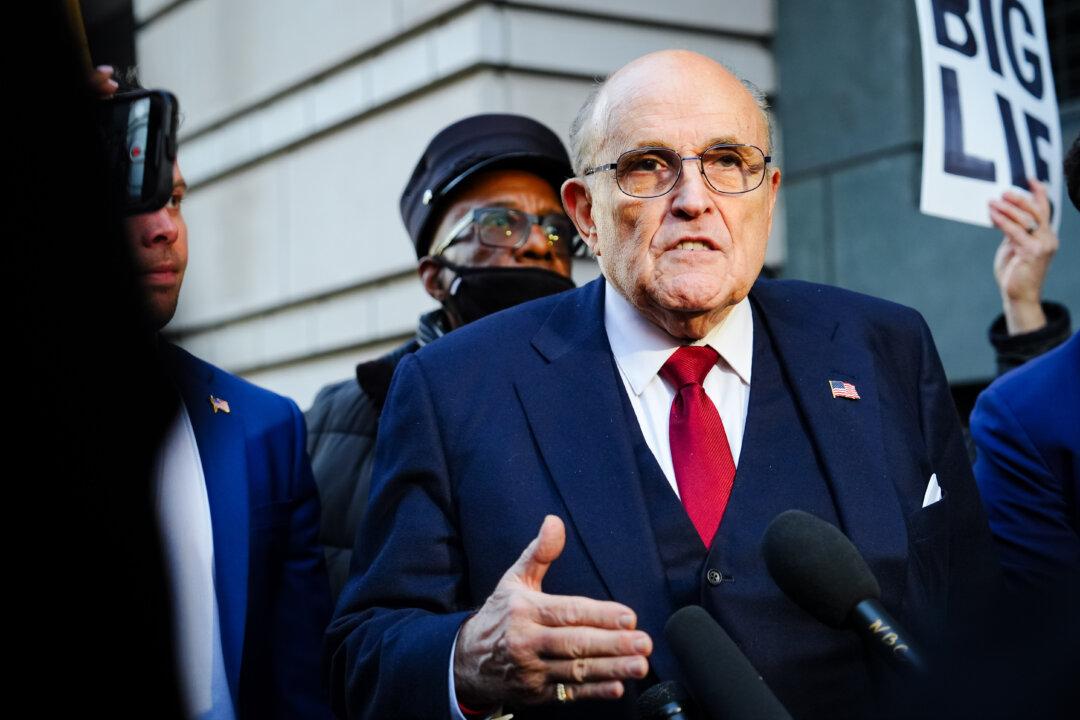A grand jury in Arizona on April 24 indicted 18 Republicans, including Rudy Giuliani and former White House chief of staff Mark Meadows, with conspiracy, fraud, and forgery for submitting a document to Congress “falsely” declaring that President Donald Trump beat then-candidate Joe Biden in Arizona’s popular vote during the 2020 presidential election.
The court documents identify a “prior U.S. president,” presumably referring to President Trump, as an unindicted co-conspirator.





